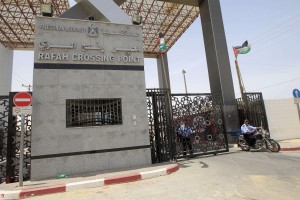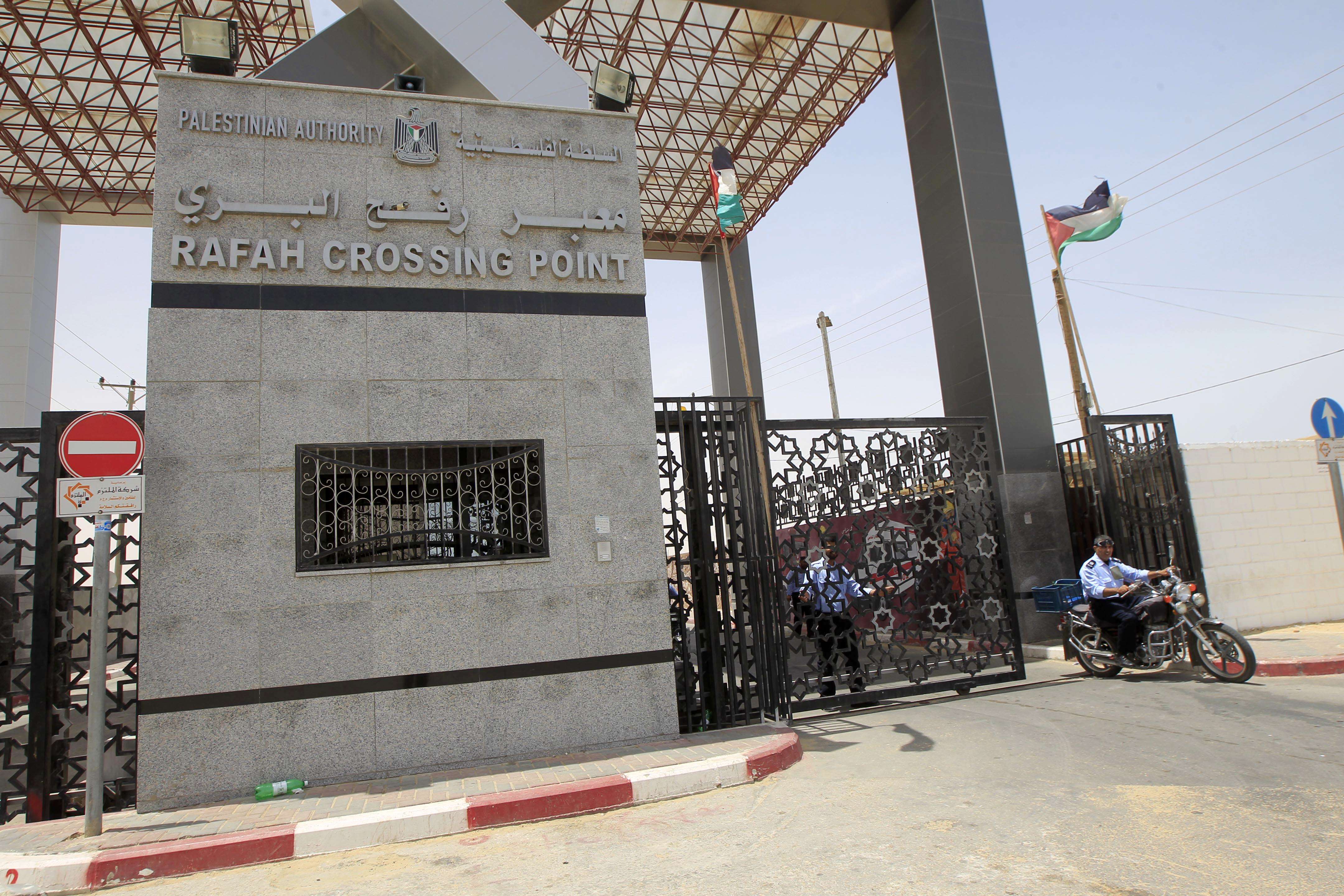
(AFP Photo)
By Jihad Abaza
Egyptian authorities allowed Palestinian pilgrims to cross the Rafah border as an exception on Sunday and Monday, according to Mushir Al-Masry, a leading figure in Hamas.
“We cannot speak of the crossing as though it is open; it is only open for pilgrims,” he said. “There are tens of thousands of students, patients, and others that are still waiting for a chance to cross the border.”
The Egyptian state closed the Rafah crossing last July, and undertook a crackdown on the tunnels beneath the border, often used for smuggling. Thousands of tunnels have been demolished in a campaign that has resulted in an overall tightening of the siege on Gaza.
“The reality now is that Gaza is going through the worst and toughest time,” Al-Masry said. “It is more difficult than the days of Mubarak. The siege undertaken by the Egyptian state is complemented by the siege undertaken by [Israel].”
A media campaign against Palestinians accompanied the closing of the crossing and crackdown on the tunnels.
Egyptian state media accused Palestinians of killing Egyptian soldiers, conspiring to take over Sinai, stealing fuel, and of interference in Egypt’s internal affairs.
Ousted president Mohamed Morsi is also charged with collaborating with Hamas.
For the vast majority of Palestinians living in Gaza, the Rafah crossing remains the only way out of the strip, and served as the primary entry point for food, construction materials, and medical care.
“We are calling on the Egyptian authorities to take on their humanitarian and moral responsibilities and to open the Rafah crossing,” Al-Masry said.
